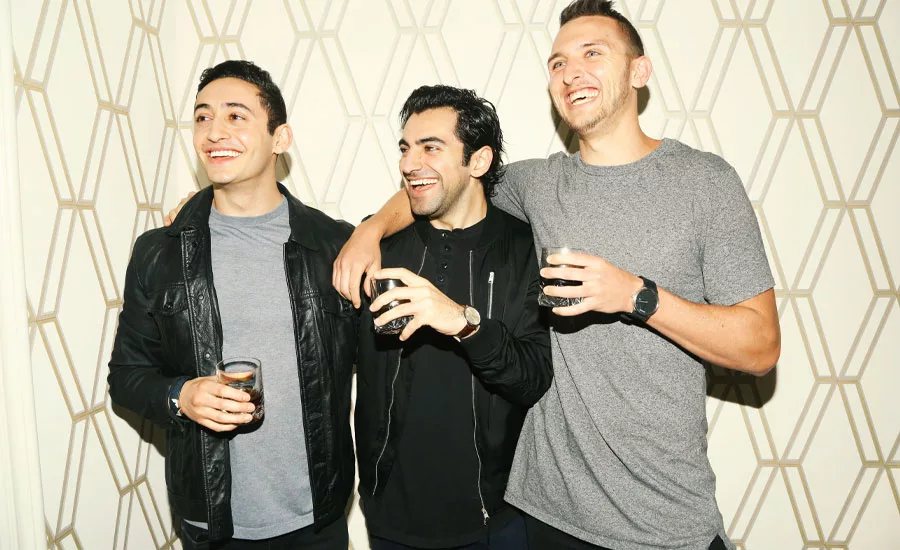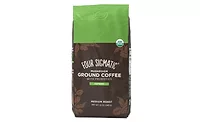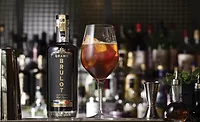Category Focus
Hard coffee dollar sales see 11,000% growth since 2019
Consumers’ affinity for coffee, alcohol boosts segment’s success

Balancing mellowing-out and a pick-me-up, hard coffee is making a splash in the beverage industry. Capitalizing on America’s “coffee culture,” emerging hard coffee brands are seizing the opportunity to expand on coffee’s repertoire with a variety of options by combining the best attributes of caffeinated and alcohol beverages.
According to New York-based Nielsen CGA, the numbers reflect hard coffee’s rise. For the 52-week period ending July 18, dollar sales for hard coffee hit $18.9 million, up more than 11,000 percent compared with the same time period last year.
“Trends impacting the market for hard coffee are the same trends dominating the overall CPG space for the last couple of decades, the first being the better-for-you trend. Consumers are looking for products that are lower in calories, sugars and carbs,” says Sam Madani, chief executive officer and co-founder of BOMANI Cold Buzz LLC, Los Angeles. “In addition, we see premiumization and transparency: consumers have become more selective as they realize they deserve higher quality products, including higher quality, ethically sourced coffee beans.”
Madani adds that consumers also now place a higher value on simpler ingredient labels, and that convenience and consumer customization also are driving factors in the hard coffee segment.
“Consumers know what they want, yet they are always trying to limit the time or effort it takes to get those things,” he says. “People are looking for products that allow them to tailor the product as they see fit.”
Perhaps most importantly, he says that taste is a large driver of success in hard coffees as consumers repurchase products they enjoy drinking. BOMANI Cold Buzz, which mixes cold-brew coffee and sugar-fermented alcohol, launched in early 2020, and is available direct-to-consumer (DTC) in 31 states.
The brand has seen success as of late, and when Madani and co-founders Kai Drewry and Amin Anjedani launched BOMANI in California, it sold out within 24 hours.
“We realized early on that there was a strong consumer demand for a beverage combining high-quality, gluten-free alcohol and naturally occurring caffeine,” Madani said in a statement.
He notes that, as BOMANI marries cold-brew coffee and alcohol from sugar, the drink is a combination of the two fastest growing subcategories in the beverage industry.
“Hard coffee is an interesting space since its participants are actually very different,” he says. “It’s a good thing. Each product targets a different subset of the overall market, and this has allowed BOMANI to innovate within our own category and own that niche.”
Variety-seekers rejoice
Another brand owning its own niche in the segment is Twelve5 Beverage Co., Neenah, Wis., which recently launched REBEL Hard Coffee, a blend of coffee and alcohol available in Mocha Hard Latte, Vanilla Hard Latte and Hard Cold Brew varieties, as well as a seasonal Pumpkin Spice Hard Latte flavor.
“REBEL was launched to meet an untapped opportunity in the flavored malt beverage (FMB) category, which has seen strong growth thanks to the rise in popularity of hard seltzers,” the company said in a statement. “The name REBEL refers to the inner rebel of variety-seekers who want to drink differently and take a break from traditional alcoholic beverage options.”
Ann Vanevenhoven, marketing director for Twelve5 Beverage Co., notes that the rate at which coffee is being consumed suggests that hard coffee is going to be big. According to the brand’s own market research, hard coffee is positioned to be next in line for trending FMBs, especially with 106 million potentially interested consumers who are already drinking alcohol or coffee.
“Coffee outpaces water, tea, and soda for consumption for non-alcoholic beverages,” she says. “Our research shows around 70 percent of consumers drink coffee. Where consumers were previously spending 99 cents for a coffee, they are now spending upwards of $7 for a single customized serving.”
Combined with consumers’ interest in new coffee experiences and flavors to keep things fresh, Vanevenhoven says an alcohol option satisfies this need, especially because the current pandemic has shifted consumer behavior in a dramatic way.
“Off-premise beverages, both alcoholic and non-alcoholic, and ready-to-drink servings are experiencing a growth in sales,” she says. “Instead of consuming these beverages in public venues, people must enjoy them at home.
“Historically, alcohol categories are recession-proof, and segments like ready-to-drink servings index stronger off-premise versus on-premise,” she continues. “A product like hard coffee gives consumers something new and different, while remaining familiar and comforting with its pronounced flavors.”
Vanevenhoven adds that the flavors in non-alcohol beverage categories like tea and seltzer have made them an innovation hub for newer alcoholic options. Hard coffee indexes strongest with two critical consumer segment opportunities for alcohol: females and millennials.
“Coupled with the popularity of coffee and the continued call for something new and different, current success suggests that the move to hard coffee is a natural progression that will be very popular among these demographics and beyond,” she says.
Looking for a reprint of this article?
From high-res PDFs to custom plaques, order your copy today!






